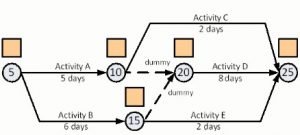I have a question for you. It is this: Should payment terms specified in the Invitation to Tender (ITT) package and contract document, influence the way a project is executed? To put it another way, should a contractor or project team consider the terms of payment outlined in the contract in planning how the project will be executed?
The answer to that question may be the difference between success and failure, growth and bankruptcy, profitability and ruin. The impact of payment terms on project and organization cashflow makes it imperative that contractors find satisfactory answers to that question.
In my earlier essay on what constitutes a successful project I listed profitability and future business to the contractor as some of the measures of project success.
Of course, that goes beyond winning contracts and delivering the projects. The contractor must maintain a healthy profit margin that allows it to invest in capacity building and improved processes and systems, to gain competitive advantage.
I remember attending a pre-bid session organized by one of the oil majors in the early 90s. The client representative complained that many of the contractors had done business with them for years and yet had no assets. Consequently, they were not capable of offering the world-class services that the client desired. And he blamed it on their cut-throat competition and resultant poor cash flow.
In the final analysis, project success to the contractor boils down to a healthy cash flow, i.e., inflow exceeding outflow. Of course, business success eventually reduces to the creation of a healthy cash flow. But the average project team is largely oblivious of this fact, especially in organizations where finance management is isolated from project management.
It is even worse in organizations where the proposal team is different from the project execution team. Consequently, project teams are not aware of the cash flow implications of their decisions, actions and inaction; they are only concerned with project execution strategy.
Perhaps I need to explain what Payment Terms means, to those who are not familiar with the expression. Simply put, it means the conditions specified in the contract that the contractor needs to fulfill to be paid for work done.
Although there are many payments terms or methods for construction contracts, I will limit this essay to two common ones:
Milestone payment – payment upon attainment of predetermined milestones (e.g. completion of site clearing, excavation, foundation, etc) within the invoicing period.
Progress payment – usually made monthly for the quantum of work completed during the period, regardless of the order in which the work is completed.
This distinction may mean the difference between life and death for a contractor. I will explain with a very simple example.
Let us use a simple building project, with milestone payments indicated above. The contractor is entitled to a percentage of the contract price upon completion of site clearing; another payment when it completes excavation for foundation; yet another payment when it completes foundation works, and so forth.
A savvy project team would then plan their work so that they complete those bits of work as soon as possible, obtain Milestone Completion Certificates (MCC) and submit invoice for payment.
An average project team, on the other hand, may open many work fronts – some site clearing, some excavation, some foundation works, without completing any. By this first terms of payment, he is not entitled to any payment, even though he may have committed much money to the work, because he has not reached any milestone!
In Progress Payment, this average project team would be paid for the quantum of work done although no milestones have been met.
This is one of the reasons why some contractors go bankrupt although they have running contracts, and the client does not owe them. But they owe banks, suppliers and staff, and interest on loans keeps mounting.

That is why it is important that the project team carefully examines the contract before deciding on the execution method. For monthly Progress Payment the execution strategy may not hold much consequence. But for Milestone Payments contracts, the strategy becomes a matter of life and death.
Opening many work fronts and leaving them uncompleted at the end of the period is the death of the contractor. A lot of work is done but none qualifies for payment. This is where the problem begins: a lot of cash outflow but no inflow!
The contractor is forced to borrow much more money than is required and that erodes the bottom line.
This unhealthy situation can be ameliorated by having the project team present project execution strategy before senior management for challenge and approval before presentation to the client.
Typically, for Milestone Payment Contracts, such presentation should include among other things, Payment Terms, Payment Period, Milestone Schedule and Budget. These should enable management to determine the minimum amount of outflow before the first inflow. This will ensure that the project is being run at minimum cost.





I want to prestigiously thank u sir, for this writeup on Project Execution Strategy, more knowledge has been gain from it…I think in every Contract or Business the major aim is profit. However in a successful project completion or Execution Strateg, the contractor or project team most think largely on the method style and partern by which the project should achieved his goals and objective Without any obstruction. Example Safety, Health Cover for all worker. I strongly think, if this are put in place, it will go a longway for a successful project completion. ….Thanks
Thank you Aniekan. You are welcome to read and challenge other posts.